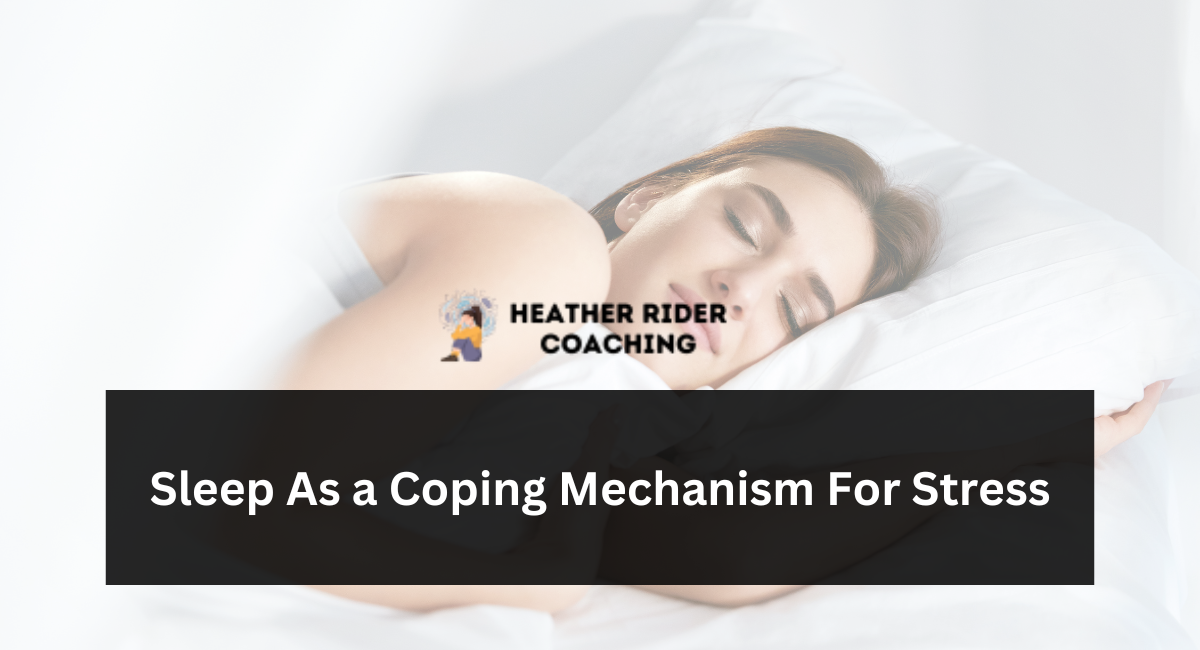Stress is inevitable, but long-term exposure to it may interfere with sleep quality and cause difficulties falling asleep and restless nights.
One study by researchers demonstrated that certain coping strategies, including positive reappraisal and placing things into perspective, were linked with improved sleep quality for highly stressed participants. By contrast, avoidance coping was not correlated with greater well-being or sleep quality improvements.
Relaxation
Sleep can be an invaluable way to manage stress. It helps regulate cortisol levels, support healthy immunity system function, and keep anxiety under control.
Recent research indicates that good sleep can help reduce stress and improve your mood, yet using it as a coping mechanism may have detrimental results.
Researchers conducted this research to understand how different coping strategies affect the relationship between COVID-19 worry and well-being and sleep quality, with lower emotion-focused and higher problem-focused coping correlated to reduced depressive symptoms – leading to better objective and subjective sleep parameters. The findings revealed that low emotion-focused and higher problem-focused coping were related to better objective and subjective sleep parameters.
Avoidance was found to have negative outcomes for most well-being and sleep measures; thus, ignoring, denying, or diverting yourself away from COVID-19 does not seem like an effective coping strategy to combat its pandemic impact.
Focus
While getting enough sleep is integral to stress management, relying solely on it may not be. Focusing on positive coping mechanisms such as setting priorities or engaging in mindfulness practices may prove more effective at relieving anxiety than using sleep alone to deal with stressful situations.
Studies on sleep and coping strategies have demonstrated how poor rest can contribute to increased levels of anxiety, depression, and other mental health symptoms; however, less research has explored the relationship between an individual’s coping style and sleep directly. This study revealed that emotion-focused coping is directly linked to improved rest, while problem-focused coping and depressive symptoms act as mediators between these styles and sleep.
Avoidance coping was negatively related to positive affect and sleep quality during the COVID-19 pandemic; problem-focused and meaning-focused coping were positively correlated. These relationships remained significant after controlling for demographics, job-related factors, age, and use of coping strategies.
Self-compassion
Take time out when experiencing negative emotions to be kind and compassionate towards yourself; doing this may help relieve some stress. Instead of self-criticism, imagine what kind of support would help a friend going through similar trials; write yourself an encouraging letter filled with kind gestures.
Previous studies suggest that self-compassion facilitates adaptive coping through reduced threat perception and perceived controllability of stressful events (Chishima et al., 2017). Unfortunately, however, self-compassion was neither found to predict sleep quality or affective state at a univariate level nor was it found to mediate stress-burnout relationships.
Two-step regression analyses were utilized to investigate potential moderation with z-standardized stress and self-compassion scores as dependent variables and clinical experience as the control variable. Contrary to expectation, self-compassion moderated the association between stress and burnout among nursing sample participants but in an unexpected manner; its protective effect decreased with increasing levels of stress.
Reward
Lack of sleep has been linked with many negative health outcomes, including mental health, obesity, and diabetes. While sleeping and napping may provide short-term relief from stress, using them as your only coping mechanism will only add more anxiety; you must address the source of the issue to deal with it properly.
This study demonstrated the significance of adaptive CER strategies, supported by good sleep quality, in helping promote resilience against depression and anxiety during periods of chronic stress. Emotion-focused coping was associated with more depressive symptoms and poorer subjective sleep quality; problem-focused coping was found to reduce depression levels while simultaneously increasing subjective sleep quality as measured in the sleep diary. Furthermore, mediation analyses for relationships between sleep quality and depression revealed a partial mediator effect from problem-focused coping on actigraphy measures of sleep quality, such as PSQI, WASO, and sleep efficiency through depression.
Conclusion:
In the quest to manage stress, sleep emerges as a powerful ally. Adequate and quality sleep serves as a natural and rejuvenating coping mechanism. It fosters emotional resilience, cognitive sharpness, and overall well-being. Embracing the restorative power of sleep can be a cornerstone in navigating life’s challenges, offering a holistic approach to stress management.
